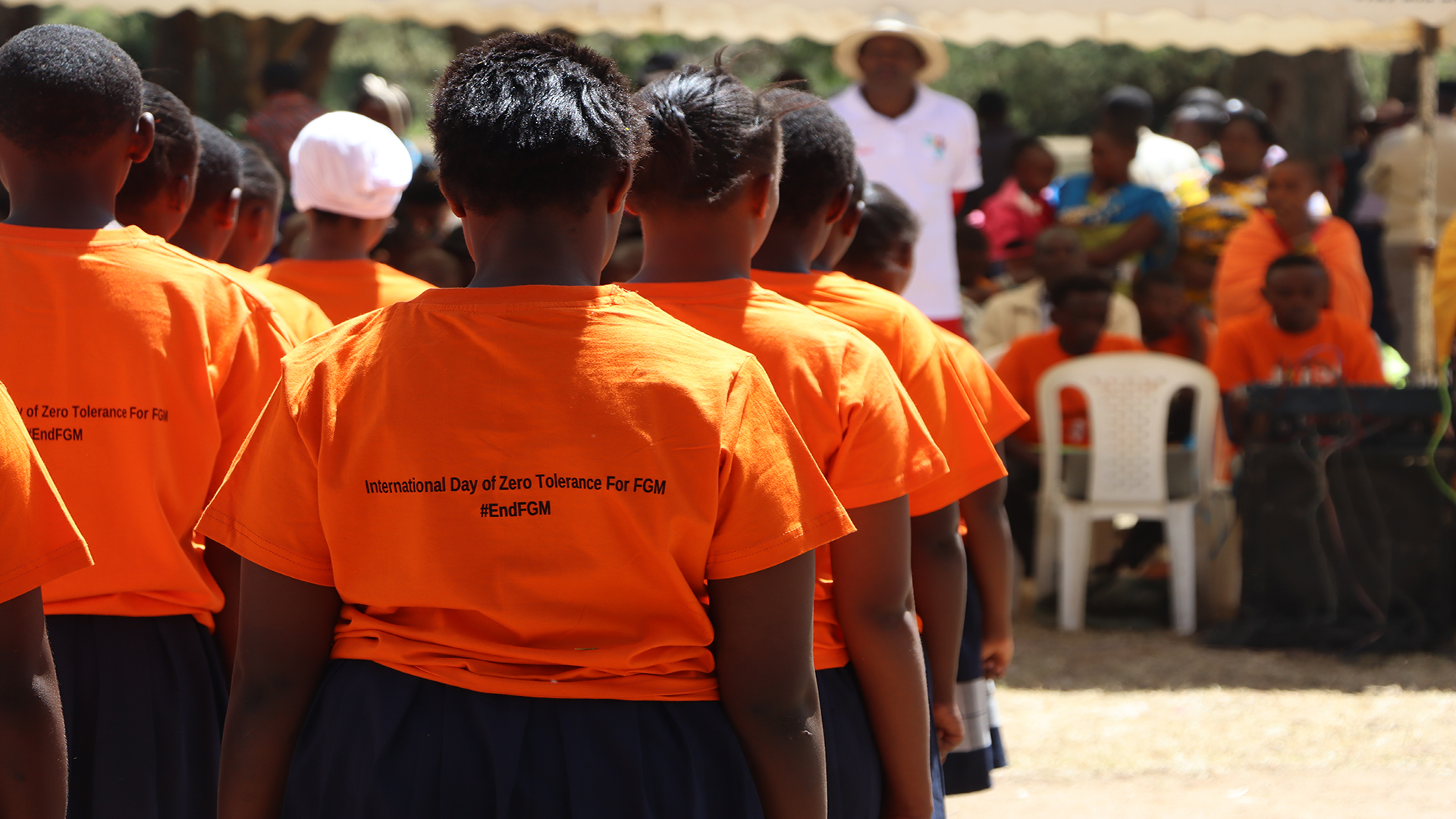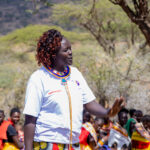Men and boys as allies in ending FGM/C
In commemoration of Zero Tolerance to End Female Genital Mutilation/Cutting (FGM/C), The Girl Generation hosted a webinar titled ‘Men and Boys as allies in Ending FGM/C.’
The webinar provided valuable insights into engaging men, the impact of FGM/C on mental health, and the importance of amplifying girls’ voices.
The panelist, which comprised of consortium and community-led organisations, shared how they have been involving young men as champions to advocate for anti-FGM/C through engaging different age sets. Avenues such as school health clubs, youth groups such as Men4Change and engaging elders and morans are actively supporting their siblings and educating their communities about the dangers of FGM/C.
Meshack from Amref Health Africa, a consortium partner of TGG-ALM, kicked off the discussion by emphasising the importance of empowering girls and giving them platforms to articulate their own issues and advocate for their rights. He highlighted the need for creating safe spaces where girls can use their voices to champion the rights of others, breaking social norms that perpetuate FGM/C.
Sadia Hussein, a survivor, and champion of FGM/C who runs the Brighter Society Initiative emphasised the significance of engaging men in the end FGM/C movement. “It is important for women and men to collaborate rather than compete. Currently, we are seeing men, boys and religious scholars stand up to condemn the practice and protect the dignity of their sisters and women in their communities. This was not the practice a decade ago.”
When asked if engaging men and boys in the fight might shift power from the most marginalised, she said. “There is no harm in engaging men, we just can’t overdo it and make them feel like it’s upon them to ensure they are ending FGM/C. “This would only mean that men can dictate what should happen and what shouldn’t happen to women and girls.
We must recognise that women and girls are most affected by this practice, and therefore, bringing their ideas and voices to the forefront should not be ignored.” Added Sadia
Lucy from West Pokot County shed light on the often-overlooked aspect of FGM/C’s impact on mental health. “FGM/C survivors experience sociopsychological effects, feeling defeated, angry, and isolated. Building a strong support system is crucial for survivors to speak out against this gender-based violence.”
Parsanka Sayianka, the Program Director of Progressive Cultures CBO shared his personal journey of becoming an ally against FGM/C and child marriage in Kajiado County. My dad told me, “I don’t want an uncut girl in my family.” He said. “Having observed the refusal of my family to acknowledge that FGM/C is a regressive tradition and witnessing the limited educational prospects for girls in my community, I made a commitment to strive for the attainment of equal opportunities for women!
Dienabou Keita, a survivor and the President of the Girls’ Club in Senegal highlighted the importance of valuing and amplifying girls’ voices in the end FGM/C movement. She described the various activities and initiatives undertaken by the club to ensure that girls’ perspectives are heard and valued.
What next?
Kennedy Odhiambo from the audience stressed the need to ensure that advocacy efforts need to acknowledge that FGM/C affects not only girls and women but also men and boys. By highlighting the impact on all genders, comprehensive change can be achieved.
The discussion brought attention to the mental health challenges faced by survivors and the need for comprehensive support systems. It also emphasised the significance of collaborations, not only among women and girls but also with men and boys, to create lasting change in ending FGM/C.
Over the past 20 years, FGM/C has declined by one quarter in the 31 countries with national data. According to the most recent Kenya Demographic and Health Survey (2022), the national prevalence of FGM stands at 15%, compared to 21% in 2014. The webinar was a powerful reminder of the progress made in the end FGM/C, movement. However, it also underscored the importance of continuing the fight to ensure every woman and girl enjoys their right to bodily autonomy and good health.
By amplifying the voices of survivors, engaging men as allies, and addressing mental health concerns, The Girl Generation Programme and its partners are working towards a future where every woman and girl can enjoy their right to bodily autonomy, have expanded choice and agency, and be free from all forms of violence.



